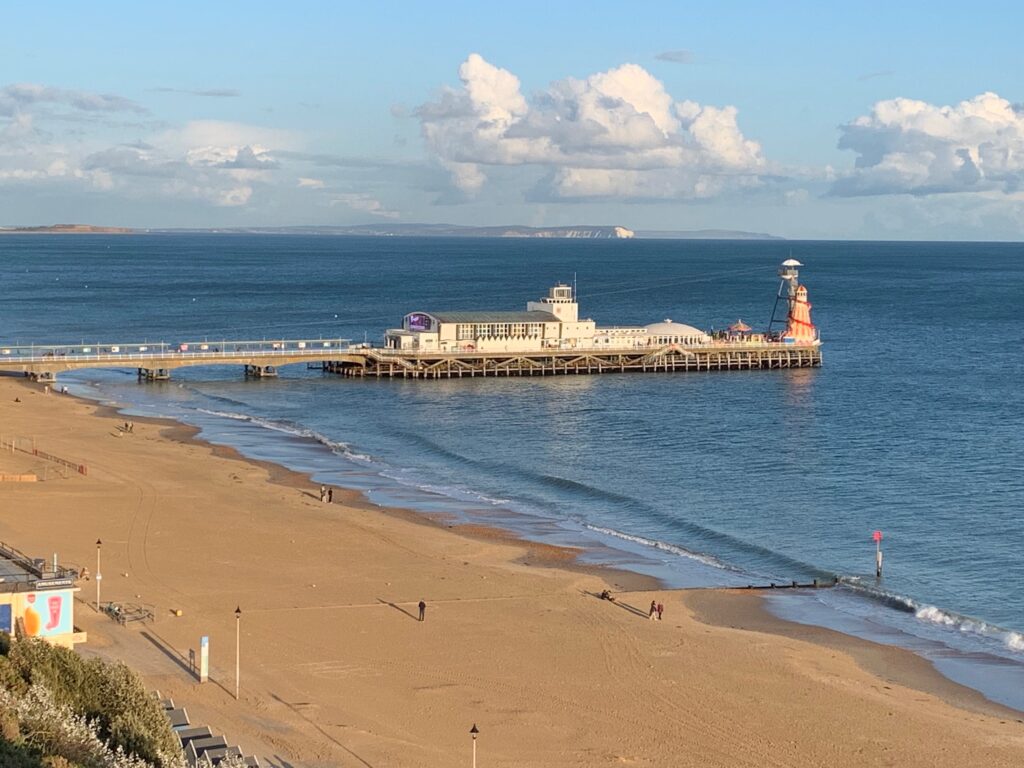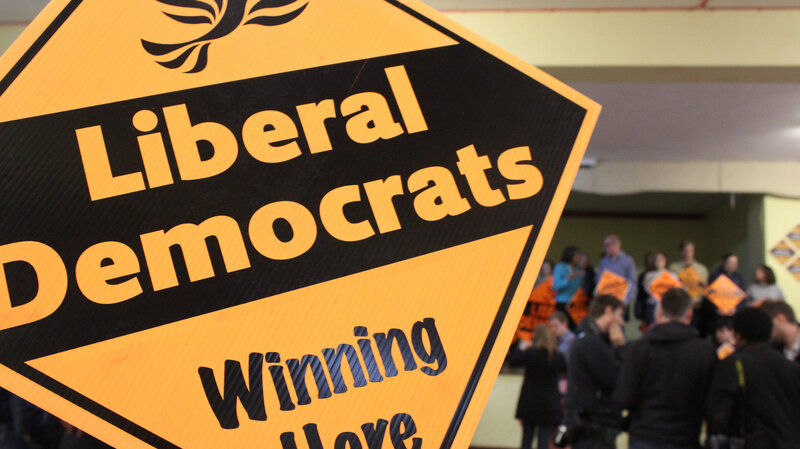
I haven’t posted for a month. I’ve been on holiday, and then last weekend I went to the Liberal Democrats conference in Bournemouth. This is the first in-person Autumn conference the party has had this parliament, since September 2019 in fact – and my first conference of any kind since then. It was lovely to catch up with friends and acquaintances, people-watch and sample some of the internal debates the party is having. But what did the event say about the health of the party?
Overall the party was in good heart after a series of spectacular by election wins and good local election results. This was widely expected to be the last Autumn conference before the next general election (a shorter Spring conference in March in York should go ahead) – which is expected next year in May or in September or October. It showed. Much passion was on display on the conference floor, and many excellent speeches – but little actual debate: few speaker’s cards were placed against motions or even amendments. It resembled the managed affairs of the Labour and Conservative parties. There was one notable exception, on housing, which I will come to.
The party leadership’s electoral strategy is clear: it is to increase the party’s representation in parliament to thirty or more seats (it is now 11 plus four by-election wins), almost entirely by winning seats currently held by the Conservatives (one or two SNP seats are in the sights, and perhaps the odd Labour one). The unspoken hope is that this will be enough to overtake the SNP as the third party in parliament, with a substantial increase in the party’s ability to influence the agenda there. It may also be enough to hold the balance of power, should Labour fail to secure a majority, and thus influence government policy in one way or another.
The contrast with 2019 could hardly be greater. The party then had momentum as a rallying point for those hoping to reverse the result of the Brexit referendum – and it talked of forming the largest party in parliament with its leader as prime minister. A lot of political capital was spent on the proposition that the party would not rerun the referendum if it won an overall majority. But the party was out-manoeuvred by Labour’s support for a second referendum (much good that it did them) and the bubble was burst in the December 2019. Following this debacle the party commissioned a post-election review by Baroness Thornhill, who, as mayor of Watford, was one of the party’s most successful politicians. Unlike most such reviews, which are generally discarded by the party managers before the next election arrives, this review has been taken to heart. Ambition has been lowered; the communications agenda is led by public opinion rather than activists’ priorities; efforts have been made to professionalise the party’s core workers and reduce staff turnover.
This gives a great deal of credibility to the party’s strategy. Early in the conference many activists were a bit glum after seeing a presentation by psephologist John Curtice that showed that the collapse in support for the Conservatives was benefiting Labour and not the Lib Dems. But what matters is what is happening in about fifty seats out of the 650, and national polls will not show this clearly. Another pollster, Rob Ford, showed that the party was doing well among better-off graduate voters, and that the numbers of these voters was increasing in the seats likely to be Lib Dem targets. The Tories’ courting of “petty bourgeois” voters by ditching green policies, and ratcheting up nasty rhetoric on immigrants, plays into Lib Dem hands here. In 2019, the Tory leader Boris Johnson was careful to nod to these voters; the current leadership knows no such subtlety. The Lib Dems should benefit from the collateral damage of the Labour-Tory contest for the petty bourgeois – rather as the Tories benefited from the collateral damage of the Labour-Lib Dem battle for the professional classes in 2019. The party’s prospects thus look good in a decent number of seats in the South-East commuter belt around London, and equivalent seats further north, such as Hazel Grove outside Manchester. The prospects are murkier in the party’s former heartlands in the west county, however, where the professional classes are much less in evidence – though with Labour relatively weak there, there must be some opportunities.
However this strategy is creating a lot of tension in the party. Listening to the electors and letting them set the agenda may be good for curbing arrogance and winning parliamentary seats, but party activists want something more ideological and radical. But the radicalism is being suppressed. The party will not explicitly campaign to rejoin the European Union, as many activists wish – a goodly proportion having joined the party in the first place because of support for EU membership. Rather like Labour, the leadership are sticking to a much vaguer line about better relations. A flirtation with Universal Basic Income (UBI) has been firmly squashed – though in general the party remains stronger on ideas for spending more public money that raising it or saving it. This conservatism led to the only serious, open conflict of the conference: on housing.
Housing developments are not generally popular in the rural and semi-rural areas that comprise the party’s best prospects. City-dwellers fume that this is “nimbyism”, but living in one such area (bordering decent Lib Dem prospect seats, though not actually in one) I can say that this is oversimplifying things bit. Many developments comprise mediocre-quality houses in environmentally sensitive areas, with inadequate plans for supporting infrastructure – because these are more profitable for developers. The Conservatives are in full retreat on their commitment to building more homes, and are attacking the Lib Dem national target of building over 300,000 houses a year (even if this commitment was in their 2019 manifesto too) – though this did not do the Tories any good in local elections here in Sussex. The Lib Dem leadership were worried enough about this to propose dropping this target in a new housing policy, while at the same time still committing to building roughly this number of homes, by increasing social housing, developing garden cities, and so on. But the Young Liberals organised a counter-attack. Younger voters feel as if they are the centre of a housing crisis, with increased rents and vanishing prospects of buying their own homes. The housing target has important symbolic value to them, and the policy looked like a retreat. The leadership tried to win by deploying heavyweight speakers, but their arguments were thin gruel. Former leader Tim Farron delivered a “barnstorming” speech in defence of the leadership position by shouting increasingly loudly that housing targets wee “Thatcherism” without explaining why. “Has he lost the plot?” my wife, next to me, asked. “Yes,” I said, and we both voted for the Young Liberal amendment, which was carried. That was the only act of defiance by the membership, however.
In the conference fringe, things were a lot more interesting. My especial interest was rural policy: how to turn around farming policy so that it helps restore wildlife and absorb carbon – without too much damage to productivity. For me this is a critical area: carbon policy will fail unless the land is made into an efficient carbon sink, and we end extractive farming practices – never mind ending the destruction of wildlife. I was encouraged by the party’s support for this, which is winning converts among many farmers. But hard choices beckon, as it is hard to see how this can work without a substantial reduction in the consumption of meat. I was also interested by the arguments made in favour of UBI at a couple of fringes. There is something deeply flawed in the conventional thinking about tax, benefits and public services – and UBI might be part of the solution. But if it is, it feels like only one leg of a three-legged stool and it will not work by itself. More on that on this blog later, as I gather my thoughts.
In his closing speech, the party leader, Ed Davey, harped on the familiar themes: outrage at water companies for dumping sewage into rivers and the sea, supporting Net Zero policies, and a new policy about health care and cancer treatment. What party activists were more interested in were his mentions of closer relations with Europe, advocacy of electoral and political reform and an attack on Labour for lacking ambition and caving in to Tory policies. He said about the minimum here, in comments that were not picked up by the media coverage. The attitude to Labour is interesting. There is no love lost between Labour and the Lib Dems. The two parties are battling against each other to win the Conservative held seat of Mid Bedfordshire in a by-election, in an interesting trial of strength. Activists were repeatedly called on the help there. The party needs Labour voters to come over to it in its key seats, and so is careful not to antagonise.
I think Ed is right in his overall approach. The next election will clear a lot of air, and hopefully the party can develop its more radical instincts afterwards. If Labour win, as seems likely, then the party will need to define itself clearly against it – and that will be a lot more interesting.

